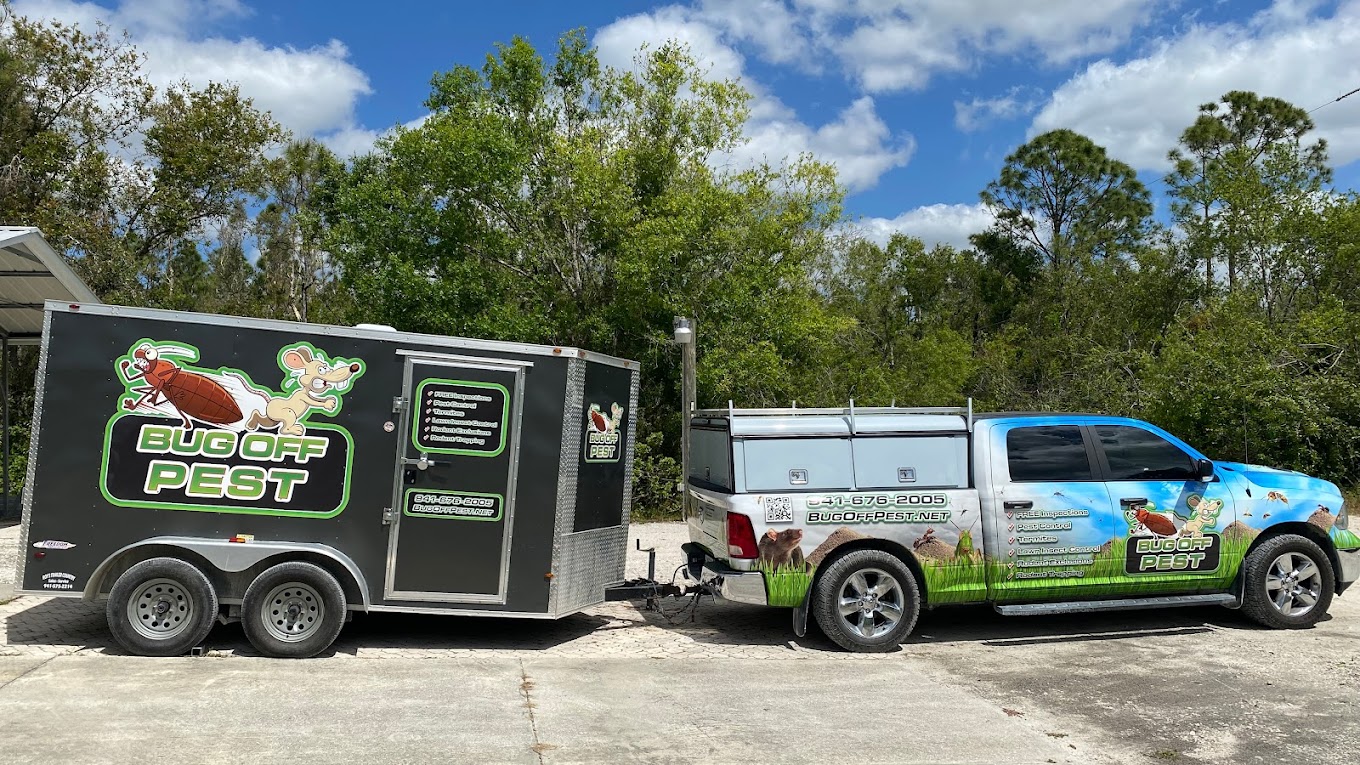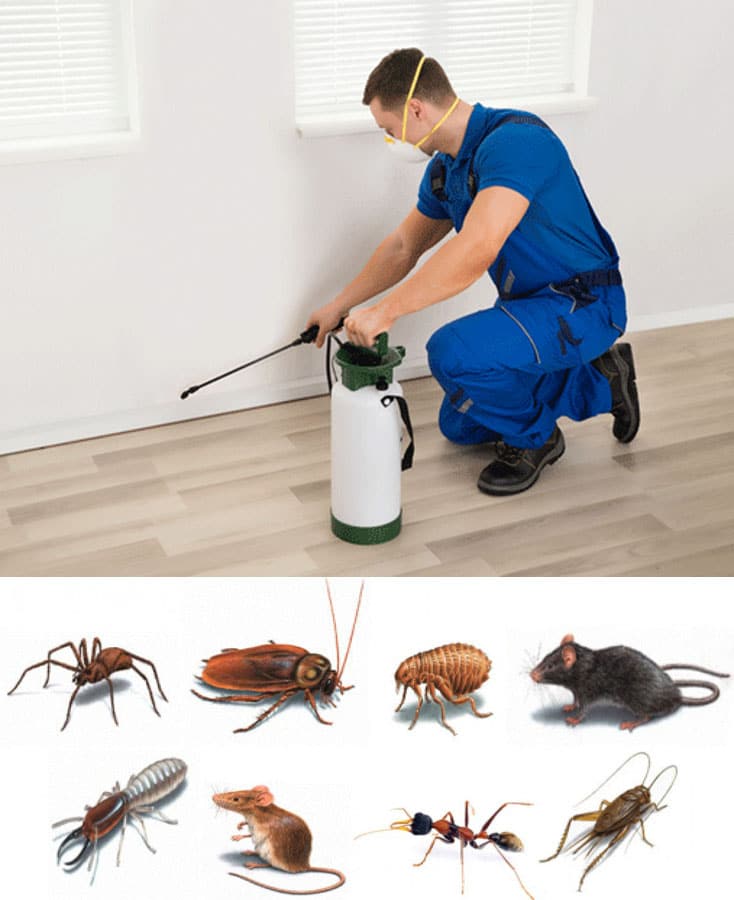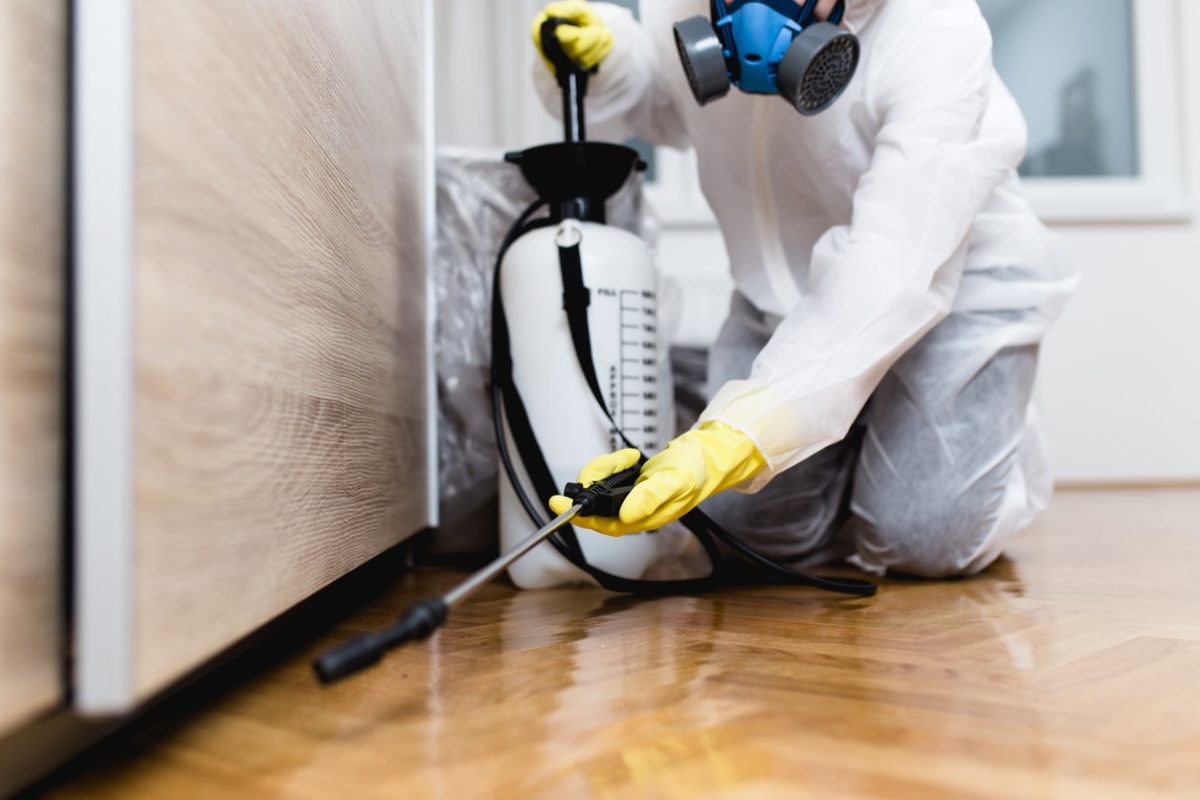Say goodbye to pests with certified Pest Control in Port Charlotte now.
Say goodbye to pests with certified Pest Control in Port Charlotte now.
Blog Article
Exploring Innovative Techniques and Products for Reliable Insect Control
The landscape of parasite control is progressing, noted by the development of innovative strategies and products developed to improve performance and sustainability. From wise catches furnished with advanced surveillance systems to organic approaches that utilize all-natural killers, these developments provide a paradigm change in just how we approach pest monitoring.
Smart Traps and Keeping An Eye On Solutions
Exactly how can modern innovation boost bug monitoring? One significant innovation is the development of smart catches and monitoring systems, which provide real-time data and analytics for effective parasite control. These systems make use of sensors and cordless technology to find pest task, informing residential property supervisors and insect control experts to invasions prior to they escalate.
Smart catches are outfitted with functions such as lure stations that draw in parasites and record them efficiently. These catches can be monitored remotely, allowing for prompt interventions and minimizing the demand for considerable chemical applications. Moreover, the integration of artificial intelligence algorithms allows these systems to differentiate between target bugs and non-target types, improving the precision of pest control procedures.
In addition, the data gathered from smart traps can be examined to identify patterns in bug behavior and environmental factors adding to invasions (Pest Control in Port Charlotte). This details is important for establishing targeted pest administration techniques customized to specific settings. By accepting smart catches and checking systems, bug control specialists can enhance their functional efficiency and reduce the environmental effect of insect administration, ultimately bring about safer and a lot more sustainable techniques in the industry
Organic Bug Control Techniques
Making use of natural predators and parasites, organic parasite control techniques offer an eco friendly alternative to chemical therapies. This approach entails the intro or improvement of specific organisms that can normally manage pest populaces, thus minimizing reliance on synthetic chemicals. Typical instances consist of making use of ladybugs to manage aphid invasions and parasitic wasps to target caterpillars.

Organic control can be categorized right into 3 major techniques: classical, augmentative, and preservation. Classical organic control includes importing natural enemies from the bug's native habitat, while augmentative control involves increasing the population of existing all-natural opponents via releases. Conservation strategies concentrate on developing conditions that sustain these beneficial microorganisms in the community.
The efficiency of organic pest control depends upon recognizing the complex communications within ecological communities. It usually calls for a comprehensive assessment of parasite characteristics and the life process of both the bugs and their all-natural enemies. While organic approaches may not offer immediate outcomes like chemical choices, they add to long-lasting insect management and ecological community health and wellness. As understanding of ecological concerns expands, biological pest control approaches are increasingly recognized for their lasting duty in integrated bug management programs.
Eco-Friendly Chemical Alternatives
Environment-friendly chemical alternatives give a practical solution for pest administration that lessens ecological effect while effectively managing insect populations. These alternatives are derived from natural sources and are meticulously developed to target particular insects without harming advantageous microorganisms, making them an essential element of lasting bug control methods.
Among one of the most effective environmentally friendly options are plant-based pesticides, such as neem oil and pyrethrin, which are originated from the seeds and blossoms of numerous plants. These materials interrupt the life process of insects, reducing their populations without the toxic impacts connected with traditional chemicals - Pest Control in Port Charlotte. In addition, vital oils like peppermint and clove oil exhibit repellent residential properties, further boosting their utility in insect monitoring

Moreover, environment-friendly chemical alternatives typically damage down faster in the setting, lowering the risk of soil and water contamination. This particular aligns with the boosting customer need for lasting techniques in farming and urban bug control. As research study continues to advancement, the growth of innovative environmentally friendly solutions will even more enhance efficiency and widen application areas, enabling pest management experts to take on greener, extra accountable methods in their techniques while protecting human wellness and the atmosphere.
Pheromone Disturbance Techniques
An additional cutting-edge strategy in sustainable bug monitoring is the usage of pheromone disturbance strategies. These approaches exploit the natural chemical signals, or scents, that bugs utilize for interaction, specifically in breeding behaviors. By disrupting these signals, pest populations can be efficiently handled without resorting to unsafe chemicals.
Scent traps are typically utilized in this method. These catches make use of synthetic variations of insect pheromones to entice male bugs, consequently minimizing their ability my sources to locate ladies and duplicate. With time, this can lead to a substantial decline in pest populations. Furthermore, the launch of repellent pheromones can produce confusion among pests, even more preventing their mating procedures - Pest investigate this site Control in Port Charlotte.

Integrated Pest Administration Methods
Reliable bug control commonly requires a detailed strategy, and Integrated Insect Management (IPM) techniques supply a framework for achieving this objective. IPM incorporates various monitoring techniques to lessen bug populations while reducing reliance on chemical pesticides. This diverse approach starts with comprehensive monitoring and recognition of pests, allowing for targeted treatments based on particular pest pressures.
Social techniques, such as plant rotation and hygiene, play an essential role in protecting against pest facility. Biological controls, consisting of natural predators and parasitoids, are used to preserve parasite populaces at workable degrees. When essential, careful chemical therapies are applied, stressing lower toxicity to non-target varieties and the environment.
By using this alternative strategy, IPM not only enhances insect control performance yet also contributes to additional info long-lasting eco-friendly equilibrium. Ultimately, Integrated Parasite Administration represents a forward-thinking remedy that straightens agricultural productivity with ecological stewardship, making it vital in modern pest control strategies.

Final Thought
Finally, the assimilation of innovative methods and products for effective bug control represents a significant innovation in lasting pest management. Smart traps and monitoring systems, organic insect control approaches, green chemical choices, and scent disruption strategies jointly improve the effectiveness of parasite administration methods. By embracing these methods, the dependence on traditional chemicals can be lowered, promoting environmental health and wellness while ensuring reliable bug control. Continued r & d in these locations will certainly better improve pest administration practices.
Report this page